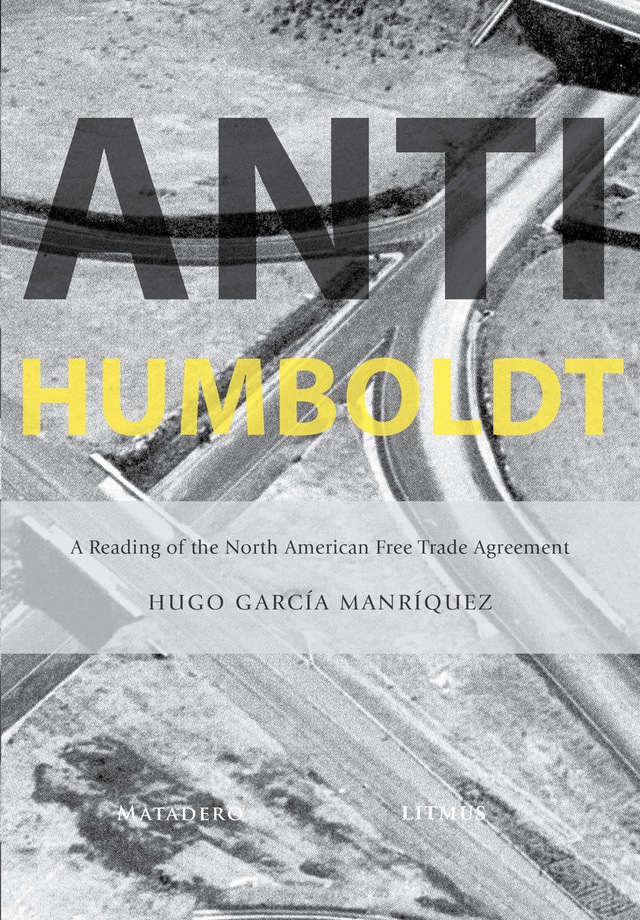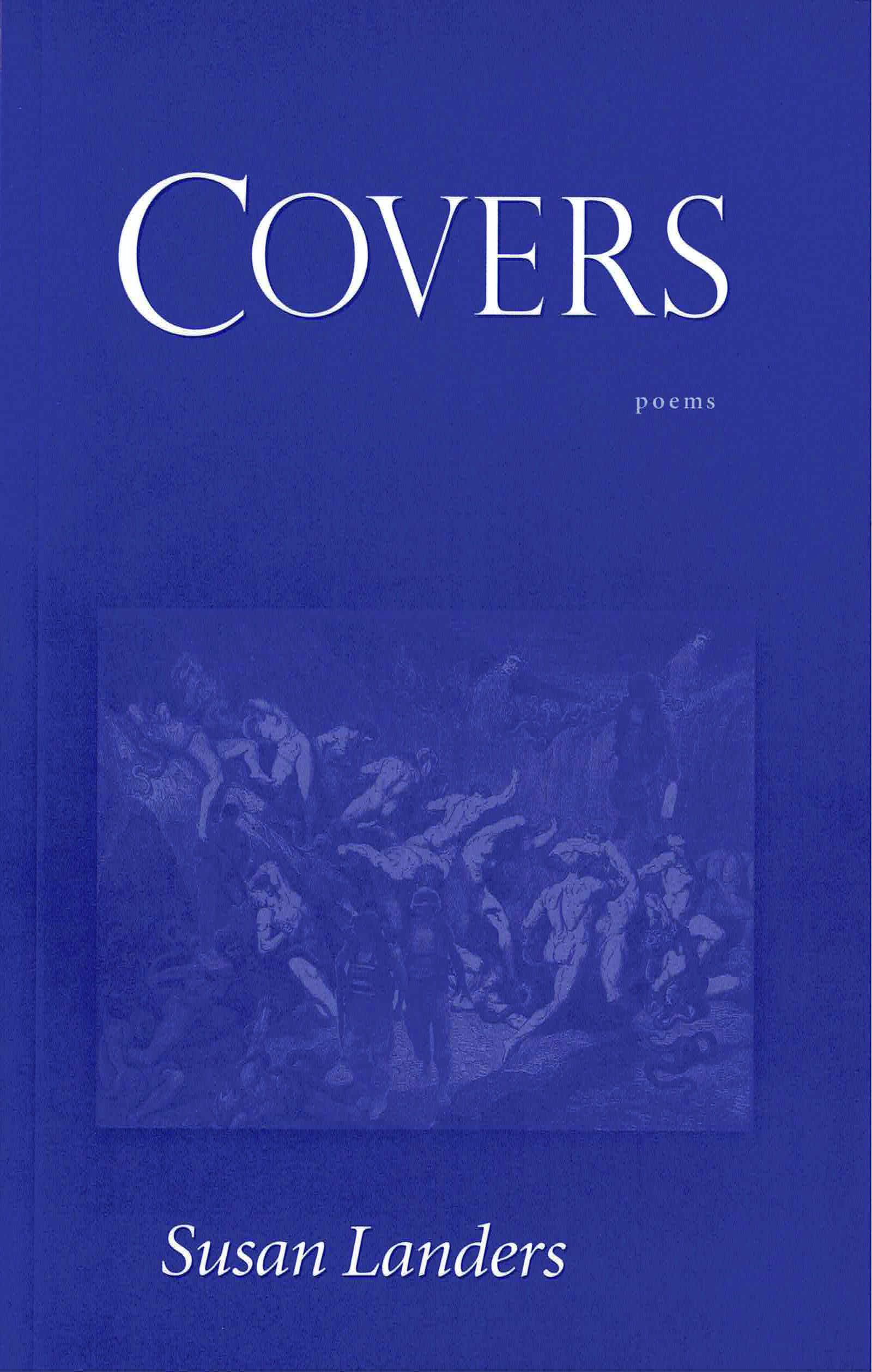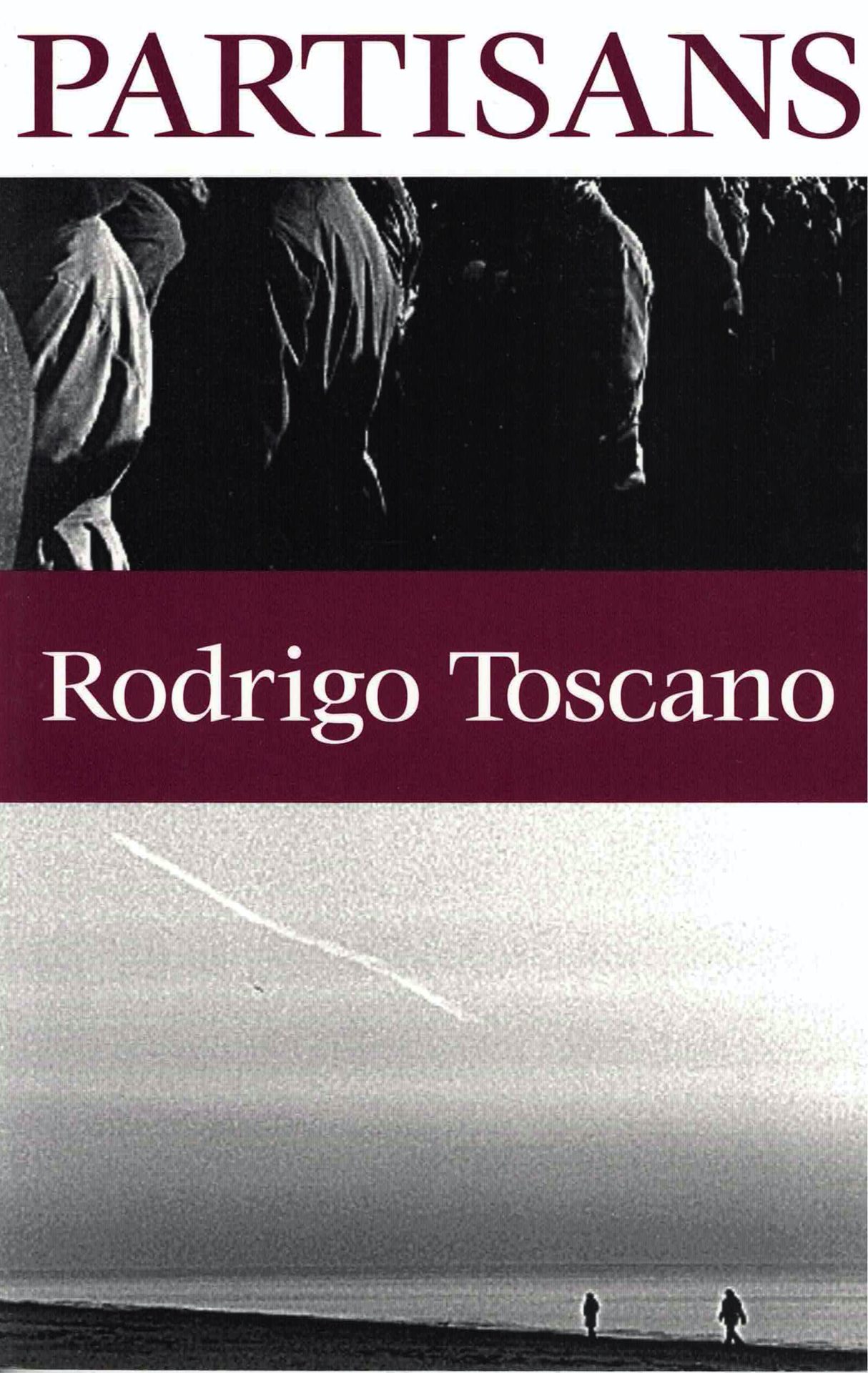Anti-Humboldt is a bilingual erasure of the North American Free Trade Agreement in English & Spanish.
In 2010, Hugo García Manríquez set out to work through the North American Free Trade Agreement in Spanish and English. The result is a bilingual artifact that interrupts and re-politicizes NAFTA’s neoliberal language, becoming a space of transnational encounter that strangely falls on the same continuum as the work of 19th-century naturalist Alexander von Humboldt—a continuum upon which the institutions of Law and Science dream of stabilizing the flux of contingency into the language of the market. No longer univocal in meaning, the remains in Anti-Humboldt resist being situated, making evident the madness of language and rationality: words that—to echo George Oppen—”have run mad / In the subways / And of course the institutions / And the banks.”
Hugo García Manríquez
Praise for Anti-Humboldt
Unveiling as he erases, García Manríquez teaches us to find the political in the poetic and the poetic in the political as he carefully reads and shrewdly re-writes one of the most influential documents in the modern life of Mexico and North America altogether: the NAFTA agreement of 1994. A dexterous excavator, García Manríquez produces pauses and hollows, openings and miscreations, in an otherwise finished version of contemporary neoliberalism. His Anti-Humboldt interrupts the flow of pre-established practices and discourses of politics, turning my reading and your reading into a veritable collaboration with the political. These are our eyes, discerning the passing of time between black and gray inks; and these are our fingers, pointing at real lives and real deaths—half-emerging and half-concealed—in between lines. Only rarely has Mexican poetry enticed the present with such critical insistence. Only rarely has post-conceptual poetry mattered this much.
— Cristina Rivera Garza
Within Anti-Humboldt, García Manríquez opens a path towards a cruel ecopoetics, a bilingual experimentalism and a new prosody. There’s something merciless in this work: it instantly makes nearly all of Mexican poetry anachronistic.
— Heriberto Yepez, Venepoetics
Hugo García Manríquez translates, re-creates, and, as I am thinking of it, miscreates the NAFTA agreement through an entwined activity of reading as inscribing… I read Hugo’s manuscript in the tradition of oppositional documentation and vandalisms that have often taken on the poetics of inscription, overwriting, and erasure that have emerged in contemporary poetics […] The poetic page of Anti-Humboldt appears like a retinal imprint produced by hours of staring at the overwhelming data of such monumental documents.
— Divvya Viktor, The Poetry Foundation




What gesture is provided by the materiality of this language, visible or not depending on the context, and what kind of “poetry within the document” is discovered through the gaze of the poet performing the intervention? This is an epic poem, a proposition to read the legal text from the perspective of the transnational hero as a “citizen of the West.”
— Marco Antonio Huerta, Jacket2
For this project I knew I needed to think about politics and poetics, in a historically significant text, and then apply pressure, question it. I felt it was necessary to assume myself as a historical subject, creating a kind of method of my own that would be informed by the historic events that have marked me— the Zapatista uprising, witnessing the ongoing effects of economic violence that has turned Mexico into a permanent state of undeclared war, war against indigenous groups, against information… In a way, I made use of precisely those elements you are supposed to conceal in order to become a “Mexican writer.”
— Hugo García Manríquez, Tripwire: A Journal of Poetics